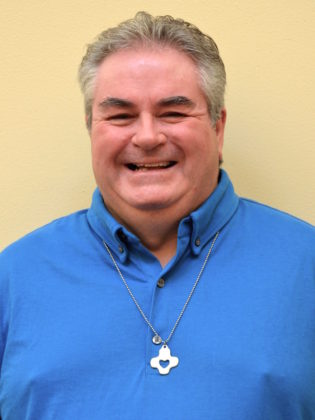 Br. Brian Tompkins ministers to our senior priests and brothers, both those at Sacred Heart at Monastery Lake and others who are in nursing care. In the May 20 issue of Dehonian Spirituality he reflects on aging and ministry to seniors. Dehonian Spirituality is a weekly publication of reflections and prayers based in the Dehonian charism. Click here to be added to the mailing list.
Br. Brian Tompkins ministers to our senior priests and brothers, both those at Sacred Heart at Monastery Lake and others who are in nursing care. In the May 20 issue of Dehonian Spirituality he reflects on aging and ministry to seniors. Dehonian Spirituality is a weekly publication of reflections and prayers based in the Dehonian charism. Click here to be added to the mailing list.
Remember the days of old, consider the years long past; ask your father, and he will inform you; your elders, and they will tell you [Deuteronomy 32:7]
Aging is inevitable. It is difficult for most people to face that fact, especially in a culture that promotes youth and the cosmetic elements that are intended to slow down the process. Fear is the word that comes to mind. Aging for the young and others who cannot consciously yield to this natural progression of life see it as an assault on their own mortality. It is difficult, then, for many to reach out to and spend time with a person who is aging.
When I visit with senior citizens in a nursing home and, more specifically and especially my SCJ confreres, I do not focus on their physical frailty or their diminished cognitive skills. [That said, I must be aware of those issues.] What is important is that I bring with me and demonstrate my care and concern, and my support and compassion. In a word: kindness. Kindness is never wasted even if the response appears muted and indifferent.
What I see is appreciation; and a prime example is when I bring the Eucharist. It can be a smile of thanks or a spoken “thank you.” It can be the obvious happiness of a woman in a wheelchair, who sees my visit as the highlight of her day. Or the good feeling I get when I hear a brother SCJ say, “Until we meet again.” Then another Father SCJ will bless what we do after he receives Holy Communion.
In a sense, I believe I am not just visiting the sick but feeding the hungry, too. It is not the food of the dinner table, a “meals-on-wheels”; it is the nourishment of being loved and not forgotten. The nourishment is God’s love in the Eucharist and the love and presence that I hope [and believe] is felt when I bring the Eucharist. What I do is a specific ministry and a very special one. It is not about me; it is about the aging person(s) with whom I have the privilege of visiting.
Looking back I realize the influence of aging persons in my life—family, friends, and relatives. It is without a doubt that I have been influenced by their presence in my life. How blessed I am that that became, even without realizing it, the motivation that led to my life of service to my aging brothers and sisters. During my visits, current and past, I think about lives lived and the stories heard and implied. Even silence among photos and ephemera can speak for the aging person.
Aging cannot come to a halt. No one is exempt from it. The youth and others who find difficulty in dealing with aging should visit their older family members, volunteer at a nursing home, and get to know that age is not to be feared. Instead of distance, develop a healthy closeness. Reverence the past and the wisdom of those who have given so much. In the sight of God it is the right thing to do. In reaching out with sincerity and love to help the aging and visiting the sick we, too, can hope and pray for the assistance we need when the “twilight” years envelop us.
The youth of today are the aged of tomorrow.


